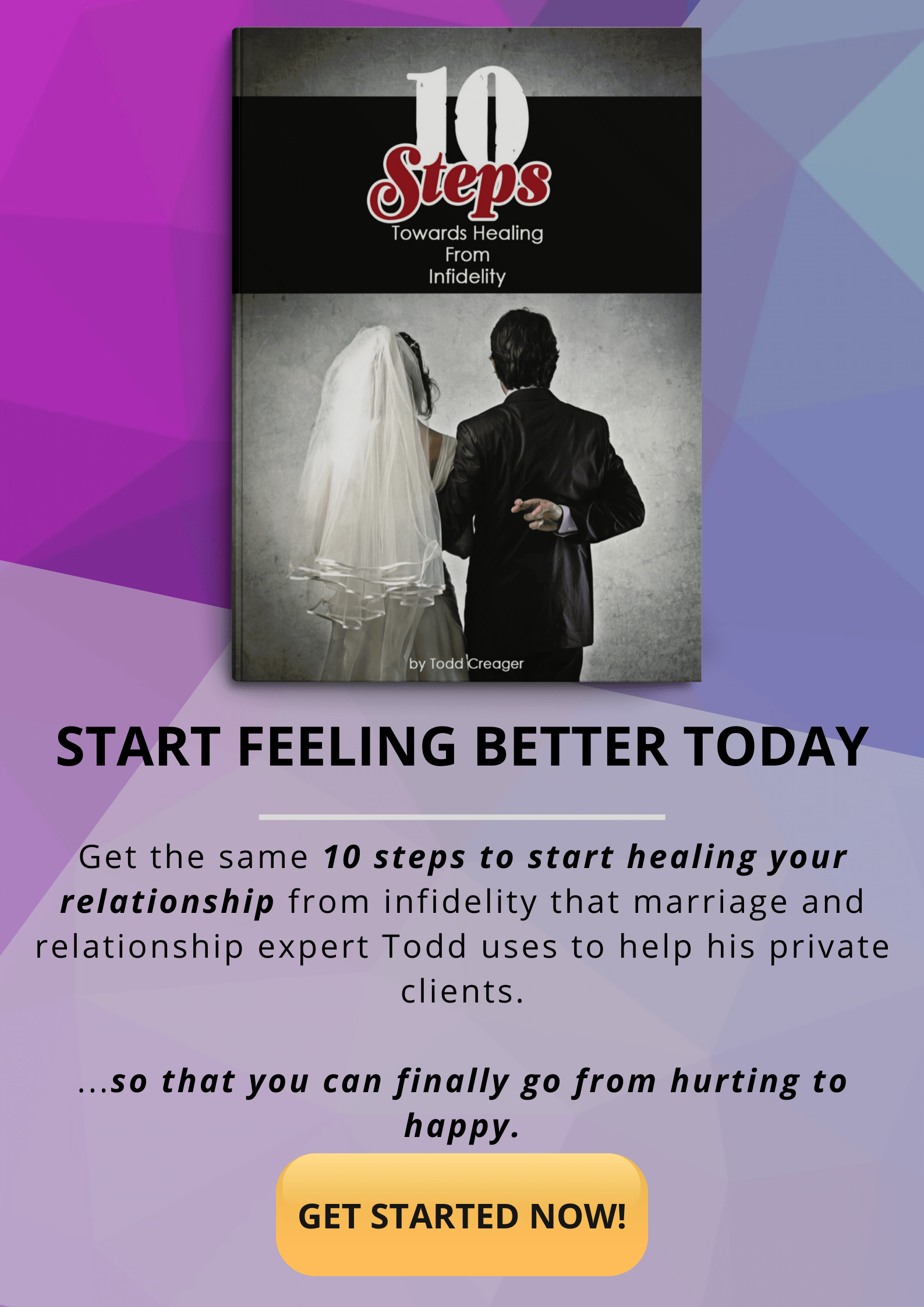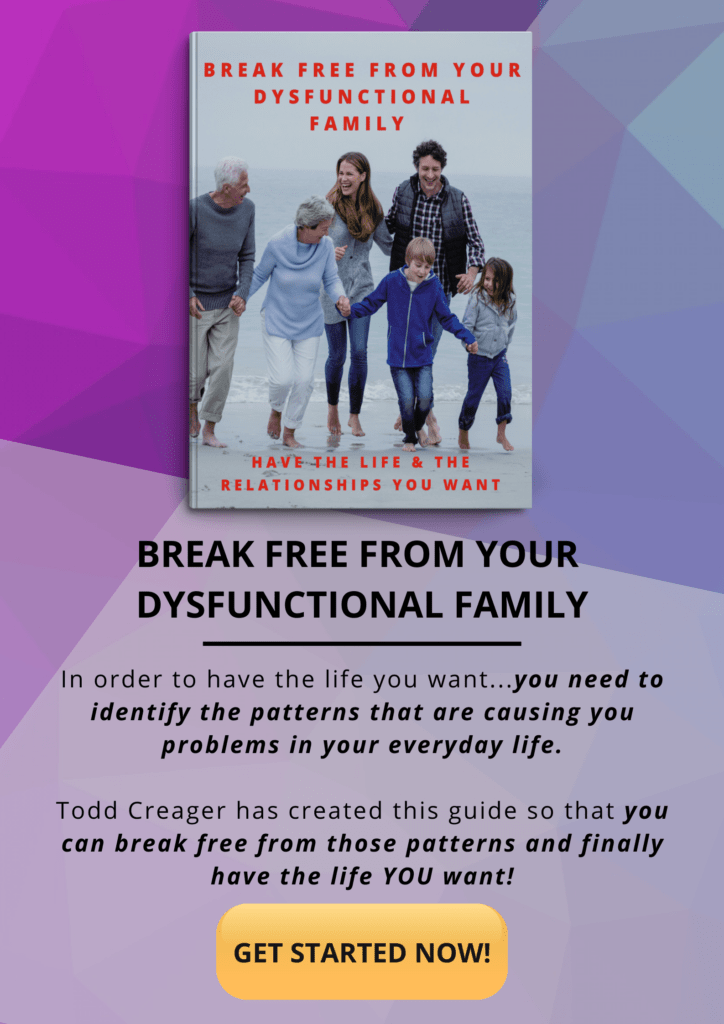When there’s been a discovery of infidelity, when do we need therapy? What kind of therapy? What makes sense?
Now, of course, I’m not saying that with every individual and every couple, that one kind of therapy fits all, but I do think that there are certain things we need to look at.
You always need therapy after infidelity discovery from a qualified therapist with expertise in this area – emotions take over and you can’t see what’s really going on underneath it all.
But here’s what most people miss:
→ Friends and family may not be the right people to go to because they have their own feelings
→ It’s not as simple as “people that cheat are bad people” – they’re hurt people who made bad decisions
→ You need therapy that goes deeper, not just surface-level fixes
When Do You Need Therapy? Always.
I’ll be blunt. I think always. The reason that I think individuals and couples need therapy from a good therapist – a qualified therapist, someone who has some expertise in the area of infidelity – is because number one, it’s so painful. Emotions take over.
Friends or family may not always be the right people to go to during these times because they have their own feelings.
There’s a lot of emotion, and sometimes when people are just in that stress mode, in that survival mode, they really can’t see what’s really going on underneath it all.
Why I think couples and individuals need therapy for infidelity is because we need to understand deeper what’s going on. We do. That’s why my healing infidelity program is called “Infidelity From the Inside Out.” We need to look at what’s going on inside. That’s where the issues are.
It’s Not That Simple: Understanding Why People Cheat
If you’ve heard me speak before, I’m saying that it’s not as simple as people that cheat are bad people. It’s just not like that.
People that cheat have hurt people. They’ve been very hurtful. They’ve made bad decisions. We’re not giving them excuses, but they’re not bad people.
They’re people who have had a lack of resources in how to regulate their emotions in better ways, or they had poor role models, or they didn’t communicate well, they didn’t know how to communicate well, they didn’t see role models of people communicating well.
So what happens is, even though we say there’s a choice, there is some truth to that the person chose to cheat.
But oftentimes there are certain choices that haven’t been – they haven’t been privileged to have.
Let me give you an example: a person who never saw a couple – their parents – communicate.
A person, a very simple example, who was in pain, doesn’t know what to do with it very well, because one of the choices he doesn’t have is to go to his partner and say, “I’m having some issues here. I’m unhappy with the way the marriage is going. Let’s work on it.”
You could say that person could do it. It’s not that simple. When the person that we’re talking about hasn’t seen it, it’s not part of their – that’s not in their thought process, and so their healthy choices are limited.
There Are Even More Options Now
I’ve had a partners say “I would never cheat.” That’s probably true. Some people would never cheat. I don’t think I would ever cheat. That’s not good, but I might do other stupid things.
Until I learned more about me and my wounds and some of my core issues so that I have choices.
Like even now, and I haven’t cheated on my wife in my 41-year marriage, but I have options in how to deal with my wife, for example, when she’s really angry at me that I didn’t even have before. I didn’t know how to soothe myself. I didn’t know how to think about it.
So what I’m trying to say is that the person who betrayed definitely needs some therapy to develop some better options so that he doesn’t go around or she doesn’t go around devastating their partner and their family for these terrible choices.
They need to learn what their options are, and I think good therapy does that.
What the Betrayed Partner Needs
For the person who was betrayed, it’s devastating and they – first of all, therapy can help that person just get some support, some care, some empathy, some understanding without necessarily taking sides or putting simplistic ideas on more complex problems.
A skilled therapist will know better than to do that, whereas family and friends might not. It’s really important for that betrayed person to have someone that could be empathizing with them, helping them slow down and tune into them.
Possibly look at some of the wounds that triggered in them from their past, if they were betrayed by parents or other people before, prior relationships, or if they’ve been disappointed or abandoned.
If they haven’t learned good ways either to communicate well or to learn how to soothe themselves or learn how to set boundaries, these are things that I think a good therapist can help with.
What Kind of Therapy Works Best
The kind of therapy probably is less important than having somebody who’s skilled in it, like I just said before.
But I do believe that the best kind of therapies that work with healing from infidelity, as well as many other kinds of problems, are those that go deeper.
They are working on what’s really going on, what’s really hurting? What are the parts of you that have been left behind that cut out your choices? How can we help you grow through this crisis?
So you want to have a therapist who can see things more deeply, who could work with trauma because oftentimes, almost always, there’s some trauma that is part of the problem on both the person who betrayed and the person who’s the victim.
So you would like someone who has been comfortable working with trauma and who also is skilled with couples.
Of course, if you’re doing couples therapy, not all therapists are – you want to have a therapist who can handle the back and forth, the two people have different perspectives, who can maintain empathy to both people.
The Depth Factor: Not All Therapists Have It
The therapist has to have some depth as well. And you would think that all therapists have depth, but that is not always the case.
A little side note, but it’s totally related to what I’m saying – I’ve had people like 30 years after my grad school experience asking me where I went to grad school, and I go, “I’ll tell you, but here’s a new perspective for clients – that’s not the right question.”
Here’s a good question to ask: What kind of therapy have you done?
A lot of new clients would never think of asking that question. I’ve had a couple, but that’s wise because you want a therapist who has worked on themselves.
So it’s the kind of therapist you want – someone who’s worked on themselves, who has gone through some things and come out the other side.
And like I said, who understands depth, who probably works well with trauma and also works well with couples.
Active Therapy That Challenges You
You want someone who can motivate and challenge clients.
You don’t want the kind of therapy where the person’s just listening. That’s important, but there has to be also a challenge aspect to the therapy that helps people develop new coping mechanisms and new ways to be.
The best kind of therapy for someone who is trying to heal from infidelity or a couple who’s trying to heal from infidelity is a therapist who understands the past.
The past does contribute to the present and we’ve got to work more deeply with the wounds and the parts that, like I said, have been left behind because maybe people don’t have all those options to problem solve interpersonal problems.
And you also want a therapist who can work in the present, who can help you develop the skills – communication.
One or the other is not enough.
You want to heal your deeper wounds, your depth, but you also want to develop the skills to become a healthier couple or healthier individual.
Success Means More Than Just Not Cheating
I always say that when I work with couples and I say I have a very high success rate with couples healing from infidelity, it’s not that they now are a couple where the person doesn’t cheat anymore. That’s necessary but not sufficient.
You want to have a relationship where you’re becoming better than you were, that you’re becoming more mature than you were, that you have more options than you were.
And so you want a therapist who not only can work with you to heal your past, but help you develop new resources for the present and the future.
Why Professional Help Is Most Effective
So that’s my stance on the whole topic of therapy and infidelity. Reading books is great. Attending different kinds of programs is great, but I find that having the one person on one or one person on two attention that has those kinds of skills is the most sensible and most effective way to go.
You definitely want to think about someone who’s a good therapist, who’s skilled.
You want someone who:
→ Has expertise in the area of infidelity
→ Can work with trauma (because it’s almost always part of the problem)
→ Is skilled with couples if you’re doing couples therapy
→ Has depth and has worked on themselves
→ Can motivate and challenge clients, not just listen
→ Understands both past wounds AND present skills
→ Can help you become better than you were before
The goal isn’t just to stop the cheating. It’s to grow through this crisis so you have more options, more maturity, and become healthier individuals and a healthier couple.
Based on clinical observations from working with couples recovering from infidelity over multiple decades of practice.
Watch The Video Here Where Todd Explains What Kind of Therapy Helps Heal Infidelity
Go From Hurting to Happy Today...
When you click the button below, you’ll gain access to my exclusive Healing Infidelity From The Inside Out Guide.
It’s a powerful resource that will support you every step of the way, providing practical guidance and actionable steps toward finding peace within yourself.







Reader Interactions